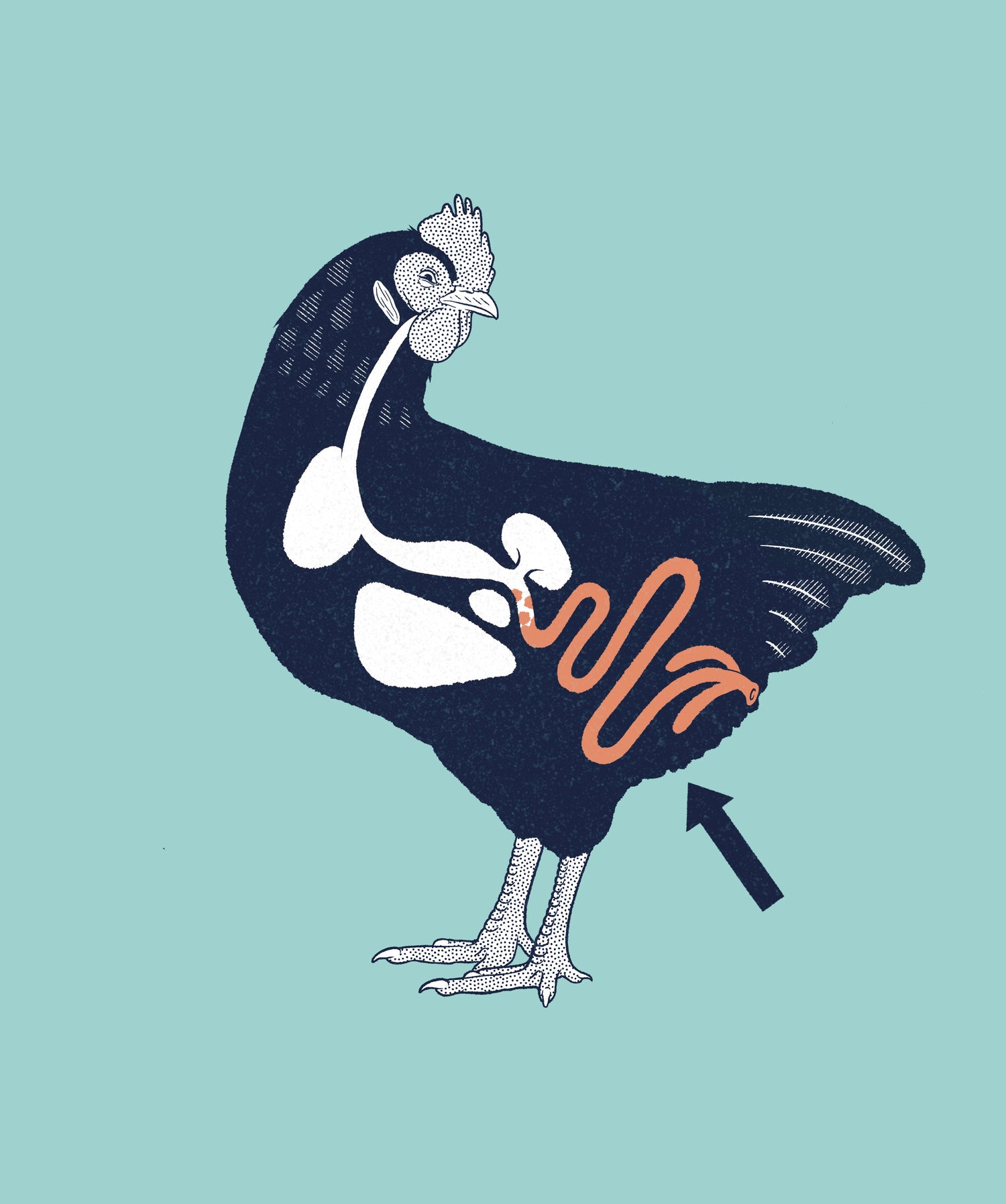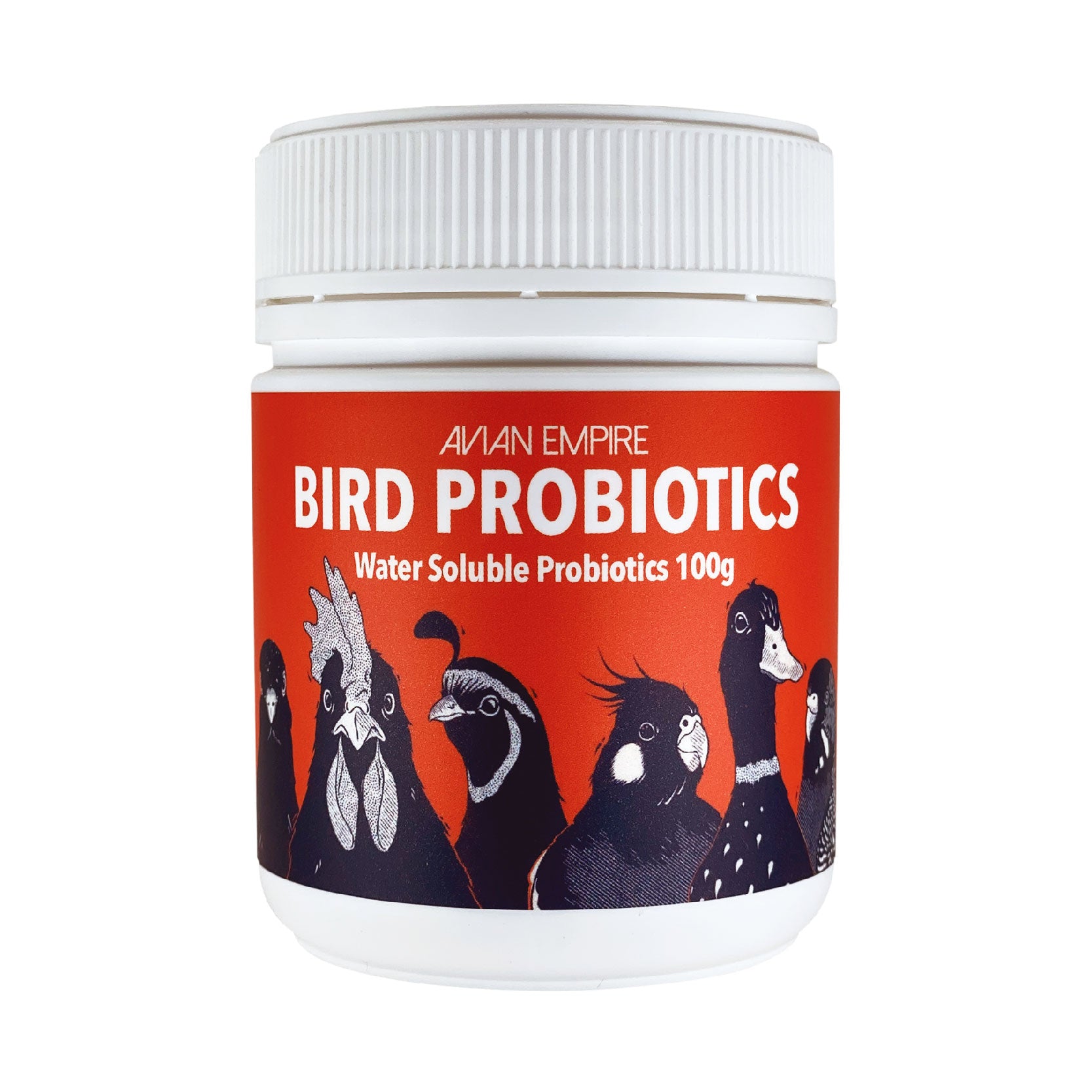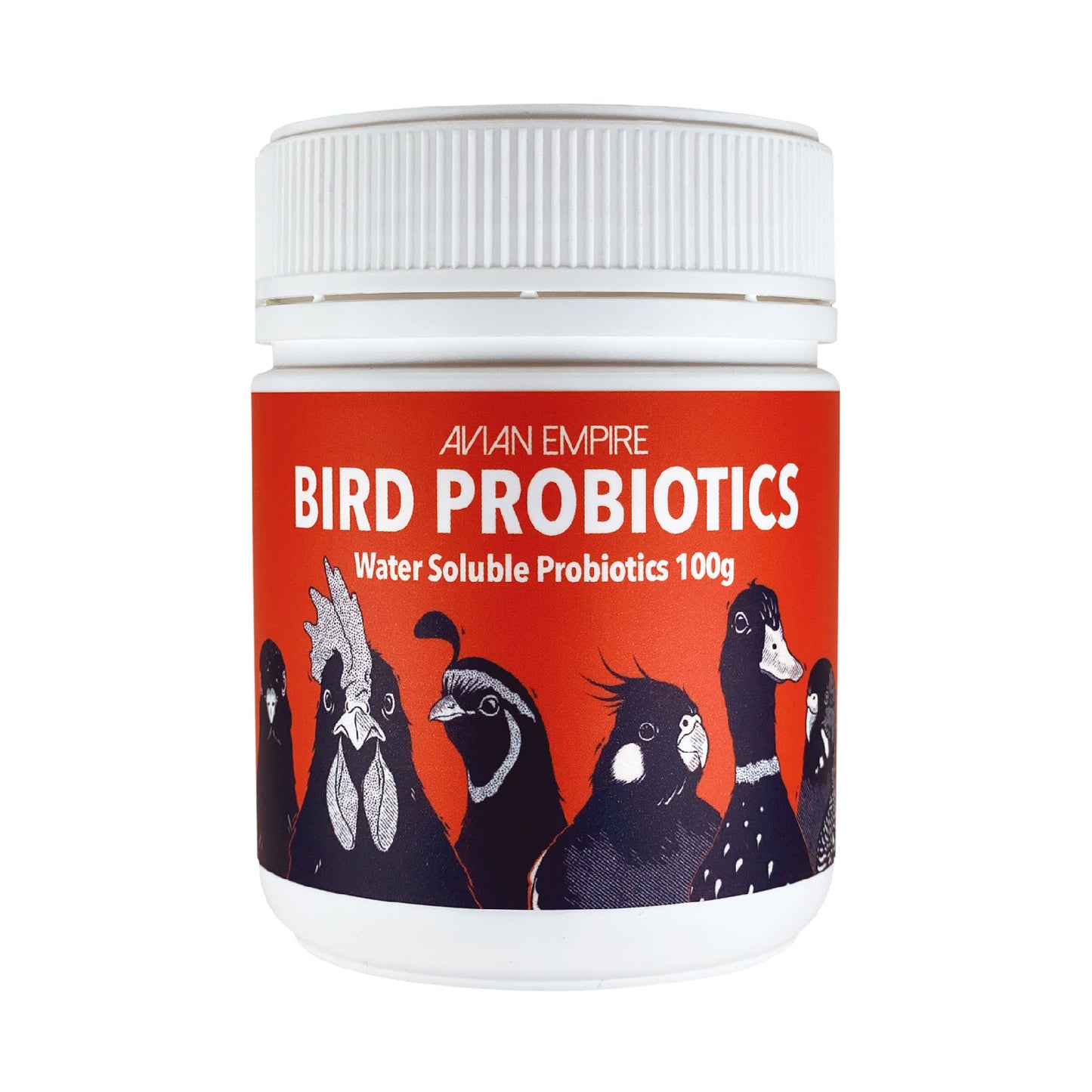

Enteritis (Necrotic)
Enteritis in poultry refers to inflammation of the intestines, often caused by bacterial, viral, or parasitic infections. It can lead to diarrhea, dehydration, weight loss, lethargy, and reduced egg production. Common causes include Clostridium perfringens (necrotic enteritis), E.coli, coccidiosis, and viral infections like rotavirus.
Affected birds may have foamy, watery, or bloody droppings, a hunched posture, and a reluctance to eat or move. If left untreated, enteritis can have lingering effects on health and production.
Clinical Signs of Enteritis
-

Enteritis can be caused by various bacteria, viruses, or parasites and is often treatable with supportive care.
-
Diarrhea (watery, foamy, sometimes bloody or green)
-
Hunched posture and ruffled feathers
-
Decreased egg production (in laying hens)
-
Lethargy and weakness
-
Reduced feed intake
-
Weight loss or poor growth
-
Dehydration
-
Soiled vent feathers
Clinical Signs of Necrotic Enteritis
-

Necrotic enteritis progresses quickly and can cause sudden deaths with little warning, requiring aggressive treatment or prevention strategies.
-
Sudden death (often found dead without obvious illness)
-
Severe diarrhea (foul-smelling, brownish or dark, sometimes with mucus or blood)
-
Depression and weakness (birds huddle, appear dull, and are reluctant to move)
-
Ruffled feathers and hunched posture
-
Loss of appetite
-
Dehydration
Causes of Enteritis
-
Enteritis in poultry is caused by infections, poor diet, or environmental stressors that disrupt gut health and lead to inflammation of the intestines. The most common causes include:
1. Bacterial Infections
- Clostridium perfringens – Causes necrotic enteritis, leading to severe gut damage and sudden death.
- Escherichia coli (E. coli) – Can cause colibacillosis, leading to diarrhea and systemic infections.
- Salmonella spp. – Leads to salmonellosis, which causes diarrhea, lethargy, and weight loss.
- Campylobacter spp. – A common cause of diarrhea and gut inflammation.
2. Viral Infections
- Rotavirus – Affects young birds, causing severe diarrhea and dehydration.
- Adenovirus – Can contribute to inclusion body hepatitis with enteritis symptoms.
- Reovirus – Causes runting-stunting syndrome, leading to poor digestion and gut inflammation.
3. Parasitic Infections
- Coccidiosis (Eimeria spp.) – One of the most common causes, leading to bloody diarrhea, dehydration, and weight loss.
- Roundworms (Ascaridia spp.) – Heavy infestations can block the intestines and cause enteritis.
- Tapeworms – Can cause gut irritation and mild inflammation.
4. Nutritional Causes
- Sudden feed changes – Can disrupt gut microbiota and cause temporary enteritis.
- High levels of poorly digested protein or carbohydrates – Can encourage bacterial overgrowth (e.g., Clostridium perfringens).
- Rancid or moldy feed – Can introduce toxins that irritate the intestines.
5. Toxins & Environmental Factors
- Mycotoxins (from moldy feed) – Can damage the gut lining and cause chronic enteritis.
- Heavy metal poisoning (e.g., lead, zinc) – Can cause gut irritation and diarrhea.
- Stress (overcrowding, heat, transportation) – Weakens immunity and makes birds prone to enteritis.
- Poor hygiene and wet litter – Encourages the growth of harmful bacteria and parasites.
6. Antibiotic-Induced Dysbiosis
- Prolonged or inappropriate antibiotic use can kill beneficial gut bacteria, allowing harmful bacteria to overgrow and cause enteritis.
Diagnosis
-

Diagnosing enteritis in poultry requires a combination of clinical signs, fecal examination, post-mortem findings, and laboratory tests to determine the underlying cause.
1. Clinical Signs (Observed in live birds)
- Diarrhea (watery, foamy, bloody, or green)
- Weight loss or slow growth
- Lethargy, ruffled feathers, reduced activity
- Dehydration (sunken eyes, dry comb, weakness)
- Loss of appetite
- Decreased egg production in laying hens
2. Fecal Examination
- Microscopic fecal analysis can detect parasites (coccidia, worms).
- Bacterial culture can identify pathogens like E. coli, Salmonella, Clostridium perfringens.
- PCR testing can confirm viral causes like rotavirus or adenovirus.
3. Post-Mortem Examination (Necropsy)
- Inflammation and thickening of the intestines
- Lesions, necrosis, or ulcers in the gut
- Hemorrhages in the intestinal lining (seen in necrotic enteritis and coccidiosis)
- Liver damage (common with Clostridium perfringens infection)
- Presence of worms or coccidial oocysts
4. Laboratory Testing
- Bacterial culture and sensitivity testing to identify bacterial infections and guide antibiotic treatment.
- PCR or ELISA tests for viral enteritis (such as rotavirus or adenovirus).
- Histopathology of intestinal tissue to confirm necrotic enteritis, viral damage, or chronic inflammation.
Treatment
-
1. Supportive Care
- Provide clean, fresh water to prevent dehydration.
- Electrolytes and probiotics to restore gut balance.
- Nutrient-dense, easily digestible feed to support recovery.
- Reduce stress by isolating affected birds and keeping the environment clean and dry.
-
2. Antibiotics (For Bacterial Causes, Including Necrotic Enteritis)
- Amoxicillin, tylosin, oxytetracycline, bacitracin or lincomycin are commonly used for enteritis caused by Clostridium perfringens.
- Antibiotics should only be used under veterinary guidance to avoid resistance issues.
-
3. Anticoccidials (If Coccidiosis is the Cause)
- Amprolium and toltrazuril are effective for treating coccidiosis.
- Sulfa drugs like sulfadimethoxine or sulfaquinoxaline may be used in some cases.
-
4. Probiotics & Gut Health Support
- Probiotics such as Lactobacillus and Bacillus subtilis help restore gut flora.
- Organic acids like apple cider vinegar can help control harmful bacteria in the crop.
Prevention
Collapsible content
1. Maintain Good Biosecurity & Hygiene
- Keep coops, feeders, and waterers clean and dry to prevent bacterial and parasitic buildup.
- Avoid overcrowding, as stress and poor sanitation increase disease risk.
- Implement strict rodent and insect control, as pests can spread pathogens.
- Quarantine new birds before introducing them to the flock.
2. Provide a Balanced Diet
- Feed a high-quality, well-balanced diet that is easily digestible.
- Avoid excess protein or poorly digested ingredients that encourage Clostridium perfringens overgrowth.
- Prevent moldy or spoiled feed, which can introduce toxins that irritate the intestines.
- Consider organic acids (butyric acid, apple cider vinegar) to promote gut health.
3. Support Gut Health with Probiotics & Prebiotics
- Use probiotics (such as Lactobacillus and Bacillus subtilis) to maintain a healthy gut microbiome.
- Add prebiotics (such as mannan-oligosaccharides or beta-glucans) to support beneficial gut bacteria.
- Essential oils (such as oregano oil) have antibacterial properties and can help prevent bacterial overgrowth.
4. Prevent Coccidiosis
- Necrotic enteritis often follows coccidial infections, so effective coccidiosis control is crucial.
- Use coccidiostats (such as amprolium and toltrazuril) in feed or water in high-risk environments.
- Vaccination against coccidiosis can help reduce the risk of secondary infections.
5. Maintain Clean Water & Proper Hydration
- Provide fresh, clean water at all times.
- Regularly disinfect drinkers and water lines to prevent bacterial buildup.
6. Reduce Stress & Environmental Risks
- Keep proper ventilation and temperature control to prevent heat stress.
- Reduce handling and transport stress, as stress weakens the immune system.
- Ensure adequate space per bird to prevent overcrowding (10 - 15cm space per bird).
7. Avoid Overuse of Antibiotics
- Unnecessary antibiotic use can disrupt gut bacteria and lead to resistance.
- Only use antibiotics when prescribed by a veterinarian for confirmed bacterial infections.

Avian Empire
BIRD PROBIOTICS - 100g
Share





